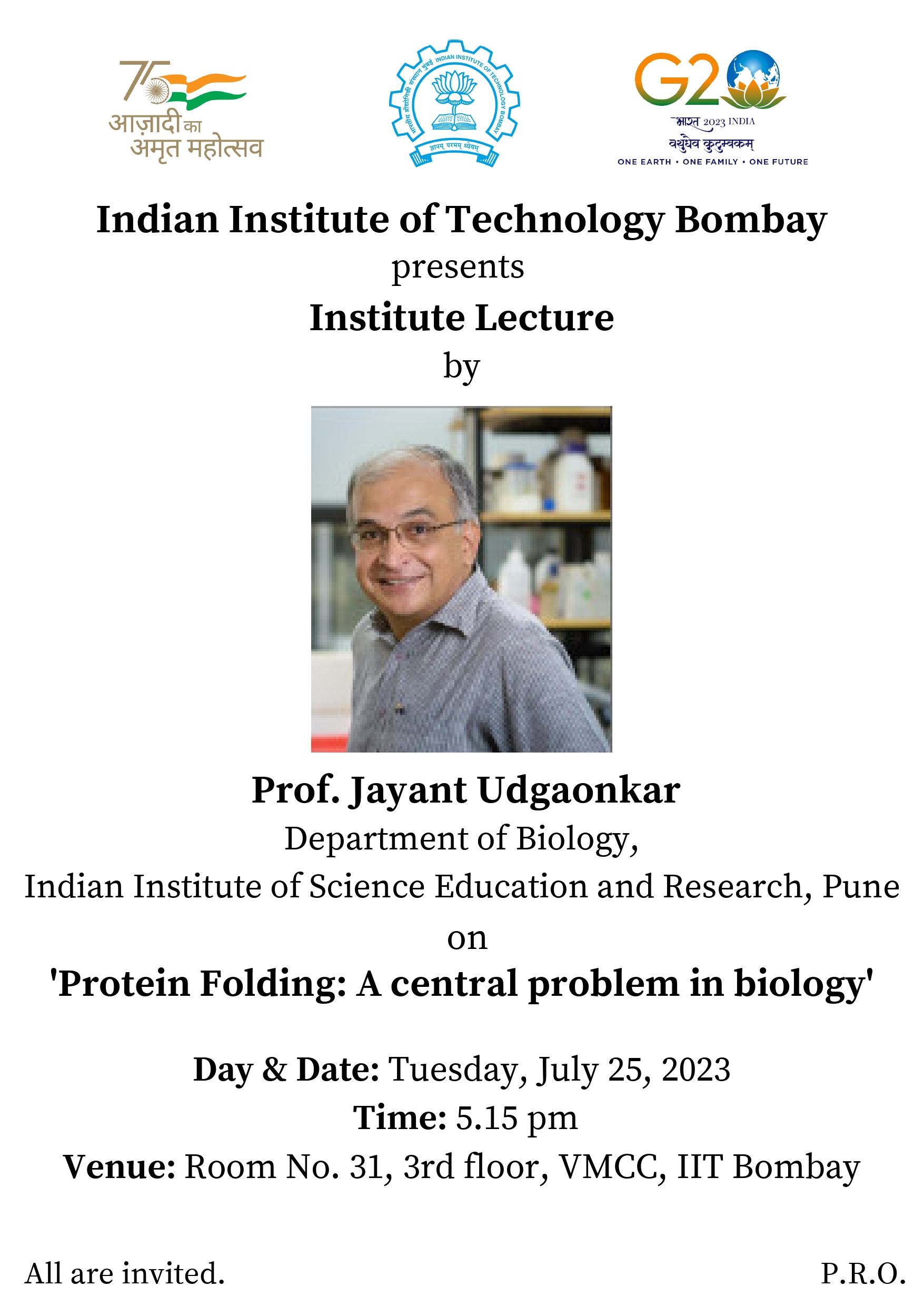The Indian Institute of Technology Bombay is organizing an Institute Lecture tomorrow, July 25, 2023. The details of the lecture are given below:

Title: 'Protein Folding: A central problem in biology'
Speaker: Prof. Jayant B. Udgaonkar, Department of Biology, Indian Institute of Science Education and Research, Pune
About the speaker: Prof. Jayant B. Udgaonkar is a well-known Indian biochemist, molecular biologist, academic and a senior professor at the National Centre for Biological Sciences. He is Ex-director and faculty member of IISER Pune. Prof. JBU is a J. C. Bose National Fellow; he is known for his studies on protein folding. He is an elected fellow of the Indian Academy of Sciences, Indian National Science Academy and The World Academy of Sciences. The Council of Scientific and Industrial Research, the apex agency of the Government of India for scientific research, awarded him the Shanti Swarup Bhatnagar Prize for Science and Technology, one of the highest Indian science awards, in 2000, for his contributions to biological sciences. He is also recipient of G.N. Ramachandran Gold Medal for Biological sciences.
Abstract: In one of the most intriguing examples of biological wizardry, in every cell, every second, thousands of proteins self-pack into the unique shapes that hold the key to their function. In essence, a freshly-formed chain of amino acids bends, loops, twists, coils and collapses on itself to produce the finished design. We know that these rearrangements are determined by chemical attractions between the amino acids. But in stark contrast to our knowledge of the digital precision by which DNA codes the sequence of amino acids, the chemical forces that direct folding act in an incompletely understood, nebulous way. Artificial intelligence methods have become good at addressing one facet of the protein folding problem, of predicting structures from human-derived knowledge of proteins, but have not produced novel ideas for how proteins fold. In our laboratory, the quest is focused on observations of real instances of protein folding, unfolding and misfolding, a complementary and ground-truthing approach to algorithm-based models. Using small proteins, and techniques that monitor shape changes with microsecond resolution, we are answering questions fundamental to solving the self-packing puzzle: Do proteins take shape gradually or in fits and starts? Is there only one folding sequence for each protein? How sensitive is folding to cellular conditions? What comes first - an "outline" of the shape or its details? We are also applying our expertise to protein unfolding and most recently to misfolding - an all-too-common problem that can cause proteins to aggregate into fibrillar masses, most tragically causing the neurodegeneration of Alzheimer's disease.